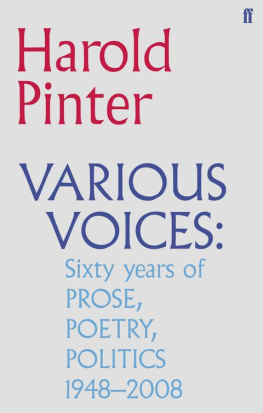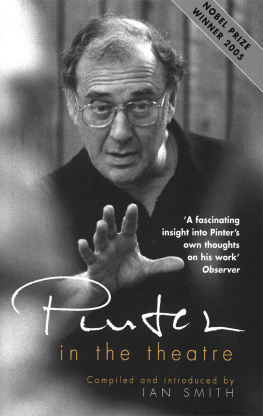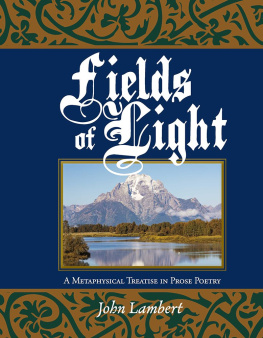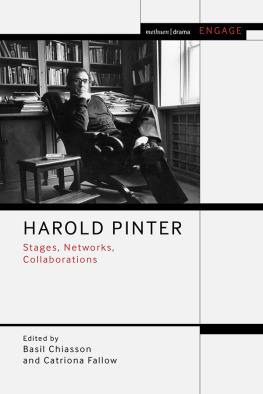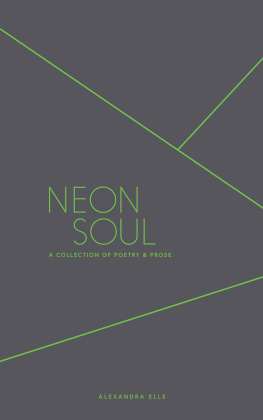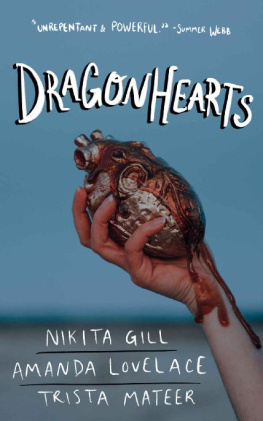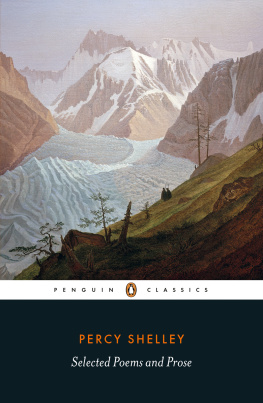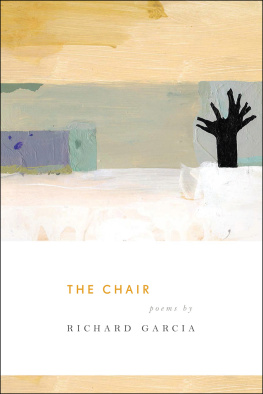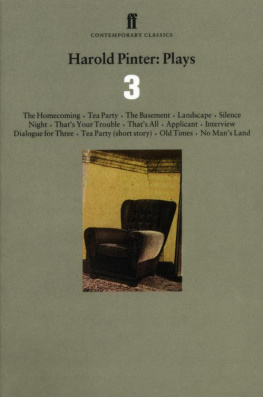PINTER : I was evacuated to Cornwall very shortly after the war broke out to a place right on the coast about 5 miles from Mevagissey.
B . S . JOHNSON : Was this with your school?
P : Yes, my elementary school in Hackney, which was a big school, but only 24 of us, not all from my class, of different ages, went to this castle. It was quite a castle really; I dont know that it was all that old but it had great grounds and a lake and it was only a couple of hundred yards from the sea and it had a private beach.
J : It was someones home?
P : It was a Mr and Mrs Williams, I seem to think the man was an MP at the time. They were very kind people and Mrs Williams was a charming woman, I remember very well.
J : Did they look after you?
P : No, they were in residence, but they had a big staff, matrons and butlers and undermaids and so on. We were fed there and slept there and we used to walk up a drive a mile long through rhododendrons to the village school.
J : Did you have lessons with the village children?
P : No, we werent mixed, Im pretty sure of that. We were all in one class together with our own teacher whod come with us from London, Mr Nelson, Nelly we called him, big fat Nelly with the cast-iron belly. This teacher was put in a very difficult position, I see now. I think the things that are bad in a teacher-child relationship at that age are normally controlled because they are limited to school, but they became more pronounced down in Cornwall because Nelly had to cope with 24 boys not just from 9.30 to 4 but for virtually 24 hours a day. He was in some sense acting as our father but everyone really rather disliked him, yes, Nelly was not a terribly appealing character at all and furthermore he knew he was disliked . He had a great habit of hitting you in the back with the knuckle of his middle finger extended. This was often out of impatience with us, and it became more pronounced because he was frustrated, his wife had not been evacuated with him; he didnt know where he was either and he simply wasnt able to manage. People were put into quite untenable positions really.
J : Did the break from your parents seem very painful at the time?
P : Not so much painful: I think I was completely bewildered by the whole thing. I was very lonely and very uncomfortable . I was nine at the time, and I didnt know why I was there, where Id come from, and what it was all about.
J : Did you have any friends there?
P : There were a couple of boys and nominally we were supposed to be friends, but we werent really; what is friendship at the age of 9 anyway? What can it be? There was one chap I knew quite well called Maurice Stoppi and I remember word came through that his parents had both been killed in London, and again this was merely bewildering , it just didnt make any sense. He didnt cry I think, he was just thunderstruck. We were a long way away, hundreds of miles away, and being away from parents was hardly distinguishable from their being dead anyway. What the war meant to us was watching dogfights in the sky down there, and of course we were fervent patriots.
J : Did your parents come to visit you at all?
P : Yes, but the thing was it was a hell of a way, Cornwall, the fare was very expensive, my father was an air raid warden in London and didnt have very much money, so they couldnt get down very often. When they did come, of course, they longed to be down there all the time.
J : Did they stay in the castle?
P : No, they were put up in the village. On one occasion my parents stayed there along the cliffs, I remember. On one visit when they left to get the bus it was a long way back to the lodge for me to walk but I went all the way to the castle and looked back and could just see them as pinpoints waiting for the bus on the road, and I suddenly ran all the way back to them over the mounds of grass, racing towards them, and of course they came towards me too.
J : Was this your first experience of the country?
P : Yes, apart from popping down to Epping Forest with my father. I got the smell of it all right. Its true for me to say that I did respond to the country, but I think the dominant thing was still being lonely and miserable. I remember very clearly stumbling on marvellous little villages, bicycling or walking along the cliffs. I remember the names of the places Suddenly on this coast in the rocks youd come across a little village, very wild. I have a distinct memory of a kind of sun glade in the middle of nowhere, and in the middle of it a little village. I cant remember anything else very much about them except the kind of silence of these villages, of these glades that you suddenly stumbled across walking through a wood, or just the other side of a field. That was the kind of mystery I liked about Cornwall, anyway. I remember very well that sense of not knowing what was round the next corner , thats the funny thing about the place. People were very quiet. I dont think Cornwall is the most communicative place anyway, and the sea made a great noise on some occasions, a kind of great resonance of noise and this and silence, and shapes and the incomprehensible existence being cut off, not knowing where one was and why, what it was all about, this makes up what it was like for me.
J : Were you allowed to range freely in the castle?
P : No, our movements were restricted in the castle itself. Obviously the owners had a completely private part of their own. There was a vast area of the castle which one never went into. Occasionally we went up to the top to the turrets to look down when we had special permission. You could see the sea very well from there.
We did see Mr and Mrs Williams but very rarely, you know, for special teas. One occasion I remember my parents had tea there with us. The other boys were there. There was a plate of buns or something and she gave me the one I wanted although she would have liked it too, I think, and after theyd left one or two of the boys who had seen this little gesture said I was spoilt and all that, I remember that quite clearly; Id been caught out being a child, having been seen.
We were allowed free run of the estate, which was very beautiful, with the sea just over the hill, the mystery of that for a boy out of Hackney. There were trout in the river and the lake, there must have been a river running into the lake. We were allowed to go on the lake, I think, once or twice. Ive never done it again, never been on a lake in a boat or anything. I think it was the head fisherman who took us, in shifts. I dont think there was a farm, It was hunting-shooting-and-fishing territory down there.
J : Did this experience of the country ever make you want to live there permanently?
P : I really would like to live in the country and I have wanted to for a long time, but I cant, its just impossible. We have tried, we lived in Worthing at the sea for a couple of years but the travelling was just too much. But where I live in London I overlook Regents Park. I work right on the top floor and have a great view over the Park. I cant imagine living anywhere where there werent any trees, the changing colours and so on, and certainly I must have first experienced this in Cornwall, was suddenly plunged into the colours of the land.
J : Do you remember missing city life?
P : I dont think I was conscious of what I actually missed, apart from being cut off from something which obviously was home.
J : Have you talked to your parents about evacuation since youve been an adult?

